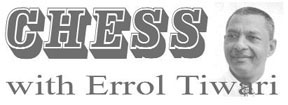Here is the penultimate instalment of the Anatoly Karpov interview discussing Fischer.
IF: When you were preparing with Geller and your team, what would a typical day be like?

IF: How long were you at this camp?
AK: We had camps from two weeks to three weeks, then we had a break for five or six days, and then another camp or a tournament.
IF: Who was in charge of the Soviet Chess Federation at that time and who would you answer to?
AK: We had a chess department in the Ministry of Sport. Mr Baturenski was the head of this department, so he was responsible for all chess players and events. He was the person I contacted. Pavlov was the Minister of Sports. He was famous as one of the best ministers of sports in my memory.
IF: So, they tried to give you all the help you needed?
AK: This was a system that was established by Botvinnik as soon as Botvinnik became world champion. It was always like this. They did nothing very special for me. It was just a continuation, so if Spassky hadn’t made this crazy match… Spassky had the same situation and so he received everything he asked.
IF: Had you met Fischer before you became the challenger?
AK: Yes, I met Fischer when he became world champion, three months later.
IF: Where was this?
AK: This was in San Antonio. There was this organizer, Mr Church, who invited Fischer for the closing ceremony on the last day, so Fischer arrived. This was my first meeting with Fischer. He knew all the others [players]. He had played with them before, but we had never met. Fischer came five minutes before the round, so he shook hands with everybody, every participant. Then he disappeared and so he didn’t stay for the closing ceremony. I didn’t see him anymore, only this one minute.
IF: What was your impression of him at that time?
AK: He looked very nice and friendly, so I had a good impression. I think it was nice to invite him as a special guest for the tournament, a great tournament.
IF: To digress a moment, I understand Krogius was on Spassky’s team as a psychologist?
AK: He was a grandmaster and a psychologist. I don’t know in which role Spassky invited him. Spassky had had good relations with Krogius for many years since the beginning of the 1960s. I believe Spassky made a very big mistake before the match when he ended his relations with [Igor] Bondarevsky who had been his main coach or trainer for many years. He gave us lectures, and he understood chess very well and he understood Spassky much better than Krogius, psychologically.
IF: Looking back on Fischer’s demands, do you feel any of them were valid?
AK: I think about the conditions of playing, some things he exaggerated, but not too much. He was fighting for the best conditions for the chess players. What he wanted was necessary. After Fischer stopped playing and I became world champion, I just followed the book of rules which we created for our match. Light is very important, because if you must concentrate for hours and sit in one chair for hours and days your chair should be comfortable and lights should be good, otherwise you become tired quickly. Fischer was correct, absolutely right.
IF: You eventually met Fischer again?
AK: I met him in 1976 in Tokyo, Japan. Fischer came especially to see me. At that time I had to obtain a Russian visa to leave the country. It was not free and I had to report why I wanted to go to one country or another. Fischer was free to travel, so the possibility was for Fischer to come to where I am. [Florencio] Campomanes had spread a lot of rumours that Fischer would come to the Philippines for an important tournament in Manila. But the last day came and Fischer hadn’t arrived and everybody thought this was just a rumour. Suddenly Campomanes told me that he had decided to visit Japan. At that time he was already FIDE vice-president of Asia. He said he hadn’t been to Japan for a long time and [Yasuji] Matsumoto, his friend, so he would come to Japan with me. Of course he knew the next day I would fly to Tokyo and that I would be there for two days.
Final instalment next week.




